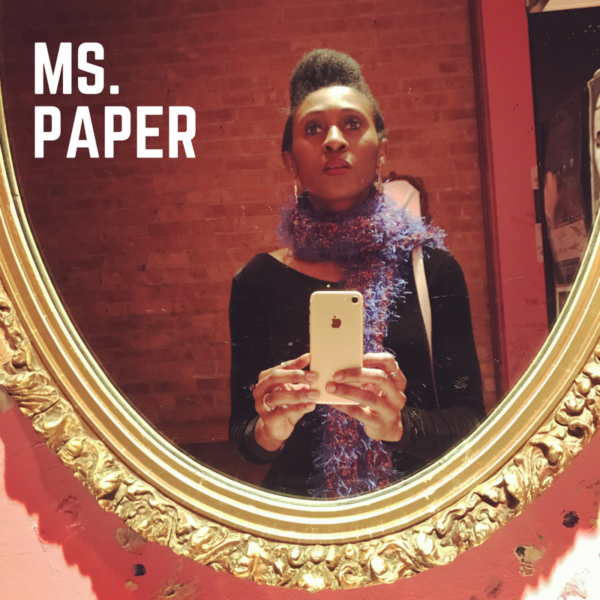Dear Ms. Paper
I found Gyasi’s Homegoing a dizzying, confusing wreck of a novel. It felt like way too many characters were jostling for space in a story that should just be about two women. The plot movement was too choppy for my taste, to be honest. Right when you’re getting invested in a character, you flip the page and see that their story has ended and put aside for a new character. The schizophrenic flight through time and space was aggravating, to say the least. Give me Things Fall Apart any time any day. I’m only here for historical fiction with a clear sense of direction.
Things Fall Apart is what you call a traditional historical fiction. It contains many characters and narrative threads but everything is neatly packed like a perfect updo around Okonkwo. The story of Obierika’s daughter getting married, Ekwefi’s abiku children, even the colonialist who suddenly pops up out of no where are refracted through Okonkwo’s eyes, his thoughts, and his actions. It’s a neat set-up that has a lot of dramatic power—kind of how Aristotle would have liked it. You take just a handful of tightly linked characters and trace their evolution across time. The story could be pared down like Things Fall Apart or expansive like War and Peace. But the idea is to keep all the strands manageable and have a nice build-up from beginning to end.
But there are drawbacks to designing historical fiction as a perfect dramatic ensemble. You end up being too selective with details and in the process exclude other voices and perspectives. For example, would it not have been nice to encounter Ekwefi outside of her relationship with Okonkwo? Would it not have been nice to know what she thought about the colonialists and all the changes taking place in her world, how it affected her and how she saw herself and her family within the grand movement of history called colonialism? That would have been too much of a digression for a story tightly organized around Okonkwo.
Well, Gyasi can’t afford to go the Achebe route. Why? Because she’s a different kind of literary historian. History is a messy affair. And Gyasi knows that there are certain kinds of truths that come through only when you hold off on reducing the past to a series of neatly linked dramatic timelines.
Another thing to keep in mind is that her novel is about slavery. Slavery is a very embodied type of violence. No two people will experience slavery or live to tell the story the same way. That’s why Gyasi cannot afford to bury all the multitude of voices in her story under a handful of key characters. Homegoing does have a clear narrative trajectory that begins in the late 18th century and ends in the 21st century. The many narrative threads are woven, though loosely, around the two daughters of a matriarch we only know as Maame. But the lives of these three women spawn a multitude of descendants, each with his or her story to tell. To capture these voices vying for recognition, Gyasi has to seek out a different style of storytelling.
She takes a more episodic approach to history. Her story is arranged not in a clean arc but like a freight train with separate but linked coaches. She gives us vignettes or snapshots of a character’s life and world, and then moves on to the next and so on. Thanks to this non-linear and episodic structure of the story, each character carves out his or her own space within the grand history of the trans-Atlantic slave trade.
Gyasi also wants to make the case that in a world built on the violence of slavery, the past is never quite past. It exists side by side with the present and can even pop up in the future. The sudden jumps from time period to time period, from character to character lets us see the past as it interacts with the present and opens out into the future.
Slavery is a fragmenting violence. It mutilates the body. It rips individuals from homelands and scatters them all over. It breaks families, friendships, and communities apart. Gyasi’s non-linear storytelling does a good job of capturing this disorienting and fragmenting violence of slavery and the systemic inequalities it leaves behind. The characters, the space, and but also the way she tells the story all bear traces of the violence they convey. A story about people’s lives falling apart through slavery should be conveyed through a plot structure that is also literally falling apart.
Okay, let me stop. I know you get the drift. The choppiness of her novel is strategic and, I’d say, allows Gyasi to do far more interesting things with re-imagining the African past than Achebe was willing to do.
****
BUY Yaa Gyasi’s Homegoing
****
#DearMsPaper is a fictional agony-aunt series that parodies readers, critics, and writers in the African literary scene. If you have specific questions you’d like me to address, send to [email protected].
To read more #DearMsPaper posts: click here.










What’s On Your Nightstand: April 2017 | Zezee with Books May 02, 2017 10:03
[…] Dear Ms. Paper: Why Does Yaa Gyasi’s Homegoing Bother Me So Much? (brittlepaper.com) […]